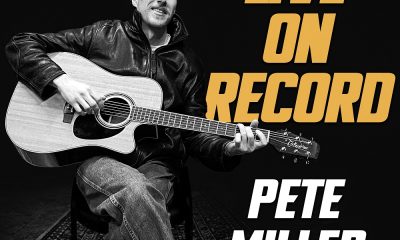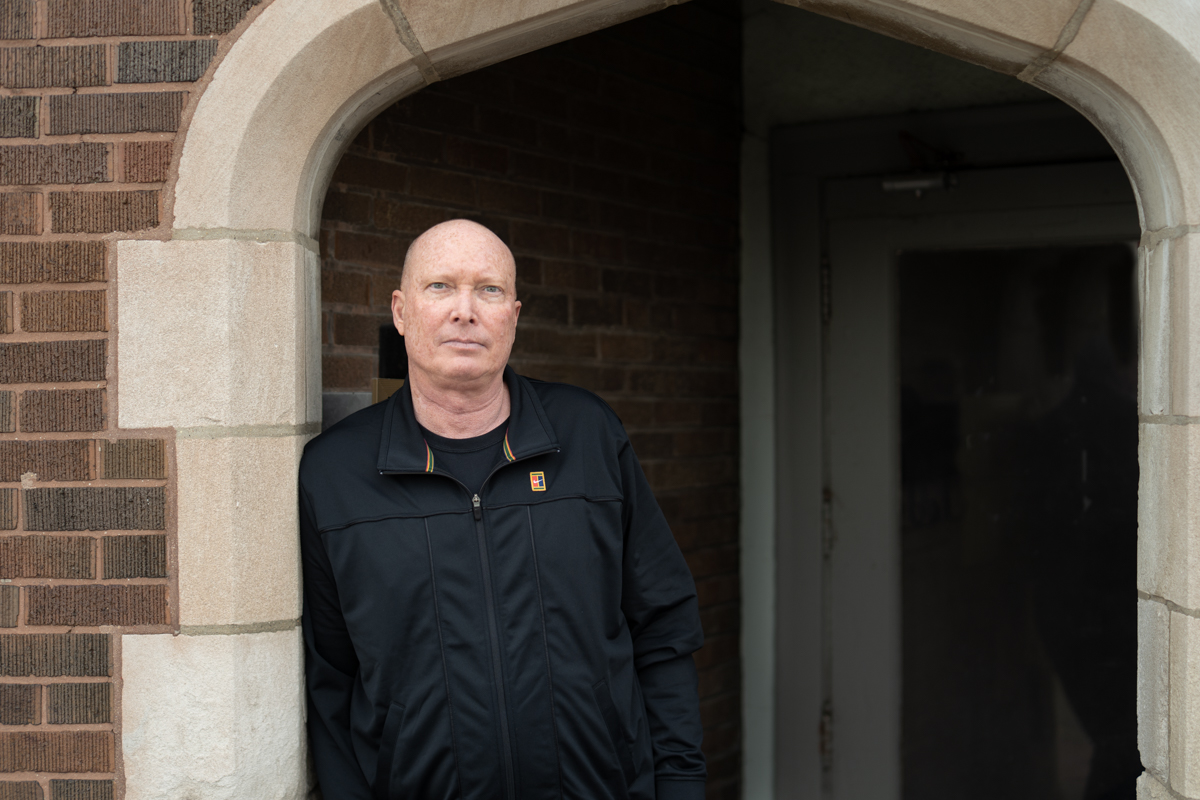
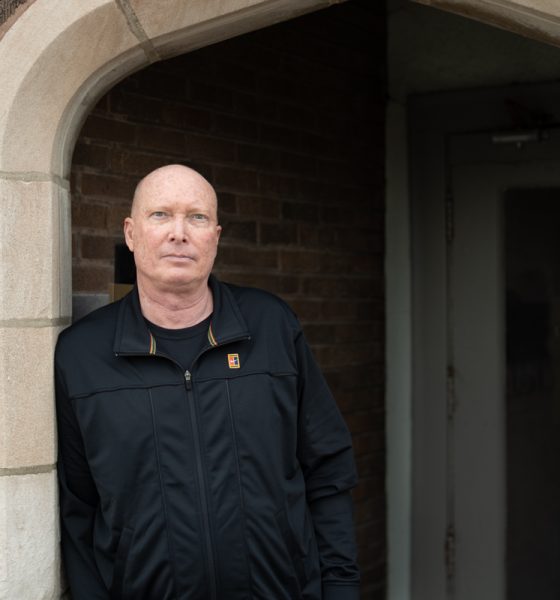
Interview
An Intimate Interview with Chart-topping Singer-Songwriter John McDonough
John McDonough has been climbing the ladder of success in the music biz for the past several years, culminating in his recent #1 National Radio Hits airplay hit, “Point Me East.” His follow-up, the title track from his highly successful EP, “We’ll Answer the Call”, is looking like it will repeat the feat. John took time from his busy schedule to sit down with us for an intimate one-one-one…
Honk: What led you to pursue a career as a singer-songwriter?
John McDonough: I have always loved to sing. As a kid, I would crank my stereo and sing along at the top of my lungs pretending I was on stage. I also loved creative writing from a young age. I even wrote a short novel when I was 12 years old. I was mesmerized by the emotion a single person could convey with only their guitar, their words, and their voice, and I wanted to be able to create that myself.
How do you approach the songwriting process?
I will think about a song for a time before I start trying to write anything. I will think about what I want to say and the feel of the music I am going for. Then I will create an outline of what I want to say in the verses and chorus. I won’t have the words written word for word, but I will know basically what I want to convey in each section of the song. I like to write the music and the lyrics at the same time. It really helps to have the song half written in my head before I sit down with the guitar and start really trying to create the finished product. I will also often take breaks when working on a song so I am mentally fresh for each section. I just finished a new song where I wrote the first verse and chorus, and purposefully stopped. I came back to it the next day and wrote the second verse. Being fresh enables me to say what I want to say as creatively and effectively as possible.
What inspires you to create music?
Two different things inspire me to create. One is the ability to express things that are going on in my life. I have written songs about unrequited love, the love I have for my niece who is very special to me, and everything in-between. I am also a history buff, and often moved to write about people in history who have experienced incredible circumstances and risen to the occasion. For example, my last EP titled ‘We’ll Answer The Call,’ tells the story of Joe Rantz, the Washington Husky rowing team, and their epic bid for gold in the 1936 Berlin Olympic Games. For my next CD I have written a couple songs about major people and moments in the Civil Rights movement of the 1950’s and 1960’s. I love sharing these stories of incredible people with my audience, and it makes me feel good to give them some added exposure I feel they deserve.

What have been some of the biggest challenges you’ve faced in your music career, and how have you overcome them?
One of the biggest challenges I faced early in my career was constant self-doubt. “Am I good enough for this incredibly tough career choice?” It took many years and some therapy to become confident enough to live with that question and fully commit to music. I committed to working as hard as I can to become as good as I can be, and not worry so much about the outcome. I often remind myself that I do this because I love it and there is nothing else I would rather be doing. I also accepted there are many levels of “success,” and I can have a successful and satisfying career even if I never sell out a stadium tour. Another tough challenge was playing the tough gigs where people weren’t really listening or paying attention. My self-confidence always took a big hit after those gigs. With more experience I learned how to use my humor and story-telling skills to better engage the crowd. I still have those tough nights, but I do my best to not let it get me down. I focus on the enjoyment of playing my guitar and singing and view it as an opportunity to gain more experience and be better in the future.
What is your biggest strength as a musician, and how do you leverage it in your work?
I think my biggest strength is my work ethic. I am 58 years old, and have accomplished some exciting things. I have had a number 1 song on a national radio chart, performed live on radio and TV, and played some big festivals. Even with this, I continue to study my craft on my quest to be the best I can be. I continue to take guitar lessons and am always studying other artists material. This field is too competitive to have any weaknesses, and I aim to be a great singer, guitarist, and songwriter. This work ethic has given me the ability and the confidence to continue to put myself out there and have the successes I have had.
What do you consider to be your most successful song or project, and why?
I would have to say my latest EP, ‘We’ll Answer at the Call,’ has been my most successful project. It has had the most streams of all my recordings, the most radio play with several songs hitting top 10 on several different national radio charts, and the best reviews in national and international publications. I also feel it has been so well received because there is so much variety in the songs while always staying true to my singer/songwriter identity. There are moments of traditional singer/songwriter styles, moments where songs have a 1970’s soft rock feel, and even moments of more current, acoustic pop vibes. I am very proud of the variety I was able to create within only five songs, while staying lyrically engaging and vocally interesting.
How do you stay current with trends and changes in the music industry, and how do you adapt your work accordingly?
Honestly I try not to worry about trends in the music industry within my creative work of being a singer/songwriter. I feel one is always going to be two steps behind and 15 minutes late to the “scene” if one is trying to make their work fit in with the current trend. I wouldn’t be staying true to myself if I was always trying to adapt my style to the current trend in hopes of being more successful. I do pay attention to the current trends in regards to the recording and production of music. I want my music to be engineered, mixed and mastered to todays standards so it translates sonically as best as possible.
Can you describe a time when you worked collaboratively with other musicians or producers?
I do most of my collaboration with musicians and producers in the studio when I am recording. I love this process! I love having the other musicians add their parts and help my songs really come alive. I have worked with the same musicians and producer for my last several projects, and I am very open to their ideas. Typically I will record my acoustic guitar and vocals at the same time. I have my engineer/producer set up the mikes, and I will get live takes of my song. Then we will layer on top of my track. Sometimes I will have ideas for what I want the other instruments to do. Often I let my musicians play parts they come up with. I know they will have ideas that I would never think of, and usually their ideas are just what the song needs. I am very lucky to have such creative and talented people in my corner, and they are always 100 percent committed to making my project as good as possible.
How do you handle criticism or negative feedback about your work?
I listen and think about what has been said. Usually, if the feedback is valid, I will agree with it and think of how I want to work with this criticism. I always remind myself that it’s going to be my name on the CD, and if I am as happy as possible with the end product, then I can live with any criticism or negative feedback.
What are your long-term career goals as a singer-songwriter, and how do you plan to achieve them?
My goal and dream is to be successful enough that I am playing to small theaters. I want to play to audiences that are there to hear me, and where I can really engage with the people. I love the nights I can talk about my songs and the history behind them. I plan to keep writing and recording with the goal of creating something so great it cannot be ignored. I also plan on continuing to play live, build my fan base, and create a grass roots movement to share my music with as many people as possible.
Stay updated! Click the Google News follow button for more news and updates.
Follow on Google NewsIndie
Interview with Free Mace

Free Mace’s new album “Better off Bitter” is releasing 7/19/24. This new album was independently produced, engineered and funded from a home studio location in Jacksonville, FL. All processes were done by Mason Thomas Staub over 3 years time. Mason sat down to answer some questions in this one-one-one interview…
Mason, your new album “Better off Bitter” is set to release on July 19th, 2024. Can you tell us about the inspiration behind this album and what themes, tones, and stories the listeners can expect?
The main inspiration behind this album is the evolution of artistry and production. Free Mace’s previous album, “Media,” was the transition into more Rock and Indie music. “Media” is a genre fusion set in a dystopian, technocratic, and bleak world, inspired by the global pandemic. As soon as “Media” released, I began drafting the early instrumentals to songs (such as Reality). Every album or EP has been a concept and “Better off Bitter” is no different. The main concept of “Better off Bitter” is being better off bitter. Over the 4 years of living in Jacksonville, FL and not being originally from there, I was the new guy in town. Because of this as well as the advantageous disposition of others involved in or surrounding the industry, I’ve faced ageism and superiority, judgment and prejudice, as well as seclusion and loneliness. Add an incredibly toxic relationship that consumed all my mental capacity for a bit (refer to the song Good Time Girl), and you get the varying emotions and experiences of “Better off Bitter.”
“Better off Bitter” describes the tone and tempo of the album, as well as mood of the songs. The goal of this album was to experiment and set a new standard against mainstream concepts, while not being so far removed from them that the music is unrecognizable. I have been describing “Better off Bitter” to people as a “Jazz Orchestra in a Pop-Punk band format.” I’m aware that this is a big claim to make, however, I’m confident that the unique sound that has been created is new and nostalgic at the same time.
You independently produced, engineered, and funded this album from your home studio in Jacksonville, FL, over three years. What were some of the biggest challenges and rewards of handling every aspect of the production process yourself?
Some of the biggest challenges were motivation, isolation, and insecurity. When doing everything yourself it requires an incredible amount of discipline and vision. There were countless times I found myself vacationing in the doldrums for extended periods with minimal creative output. The beginning of an album always begins as a peak that declines over a period until release. It’s simple and stressless to explore, create and form new ideas, expressions, and feelings. After this honeymoon-like period, then the reality hits of how much goes into the processes of production. The starting production is always hopeful and motivating, so it’s easy to dedicate double-digit hours in a studio. When you start getting to the nitty-gritty, like listening to the same 10-seconds of audio on loop thousands of times, that’s when things aren’t done as jubilantly. That would bring me back to a creative null for a bit, until I felt confident to approach things again with a fresh perspective. The isolation came out of my own doing when I chose solitude to separate myself from distractions, toxic attitudes, limiting perceptions, and peer approval. I prioritized myself and focused on what was important; the completion of “Better off Bitter.” I became more mindful in the process in regards to how I would spend my time in the doldrums. I had a new motivation that allowed me to be more realistic about what songs would make the album (originally 15 instead of 10), what the context and sound would definitively be, and when a deadline would be. After finally completing it, that’s where the insecurity set in when it comes to the acceptance of the album, “Better off Bitter.” 3 years of work is a lot of time to think about how things will be, but I’ll just have to wait and see.
\Which track on the album holds the most personal significance for you, and why? Can you give us some insight into the creative process and meaning behind that particular song?
I would say that the last track on the album, “The Heretic,” has the most significance to me because it’s the finale. This is the last song someone will hear and the last chapter to the story conveyed in “Better off Bitter.” The idea of “The Heretic” comes from the snake-oil sales in the name of religion. The concept that an individual with certainty can sell others with a promise rather than those individuals being at terms with uncertainty. I wanted to provide an image of an interaction between a salesperson and a potential customer. Eventually getting discovered for their fraudulence, the salesperson is forced to lead a vagabond life until the discovery of reinvention.

Over the course of three years, your musical style and influences might have evolved. How do you feel your sound has changed or matured from your previous work to this new album?
The previous Free Mace album, “Media,” was a transition into more up-tempo music. I would see how people would react at the concerts and the up-tempo would always have a better response from what I could tell. It’s not that the audience didn’t enjoy the slower tempo music, it was more about what their body language conveyed. I started to notice people would be involved dancing and moshing to up-tempo music more than standing still with a head bob to a slower tempo. I wanted to do an album that would capture this high energy from beginning to end, while telling a meaningful story about emotions, experiences, and ideologies. “Better off Bitter” is the highlight album of the Free Mace discography, available everywhere 7/19/2024.
As an independent artist, what advice would you give to other musicians looking to produce and release their own music without the backing of a major label?
The best advice I would give to anyone and everyone would be to always stay true to yourself, no matter what.
What are your plans following the release of “Better off Bitter”? Are there any upcoming tours, music videos, or other projects that fans can look forward to?
Following the release of “Better off Bitter,” there will be 2-3 music videos available in varying cinematic styles. Currently in the process are one animated video (Available 7/19/2024 on YouTube) and one live-action Frank Sinatra/Edgar Allen Poe inspired video. There will potentially be shows in the future, but am needed a backing band on location for performance, so if you’d like a Free Mace show where you are located and have a professional band to provide, I will see you there!
Artist Spotlight
Angie and Chris from Eleyet McConnell Talks “Surrender,” Morphing and New Single
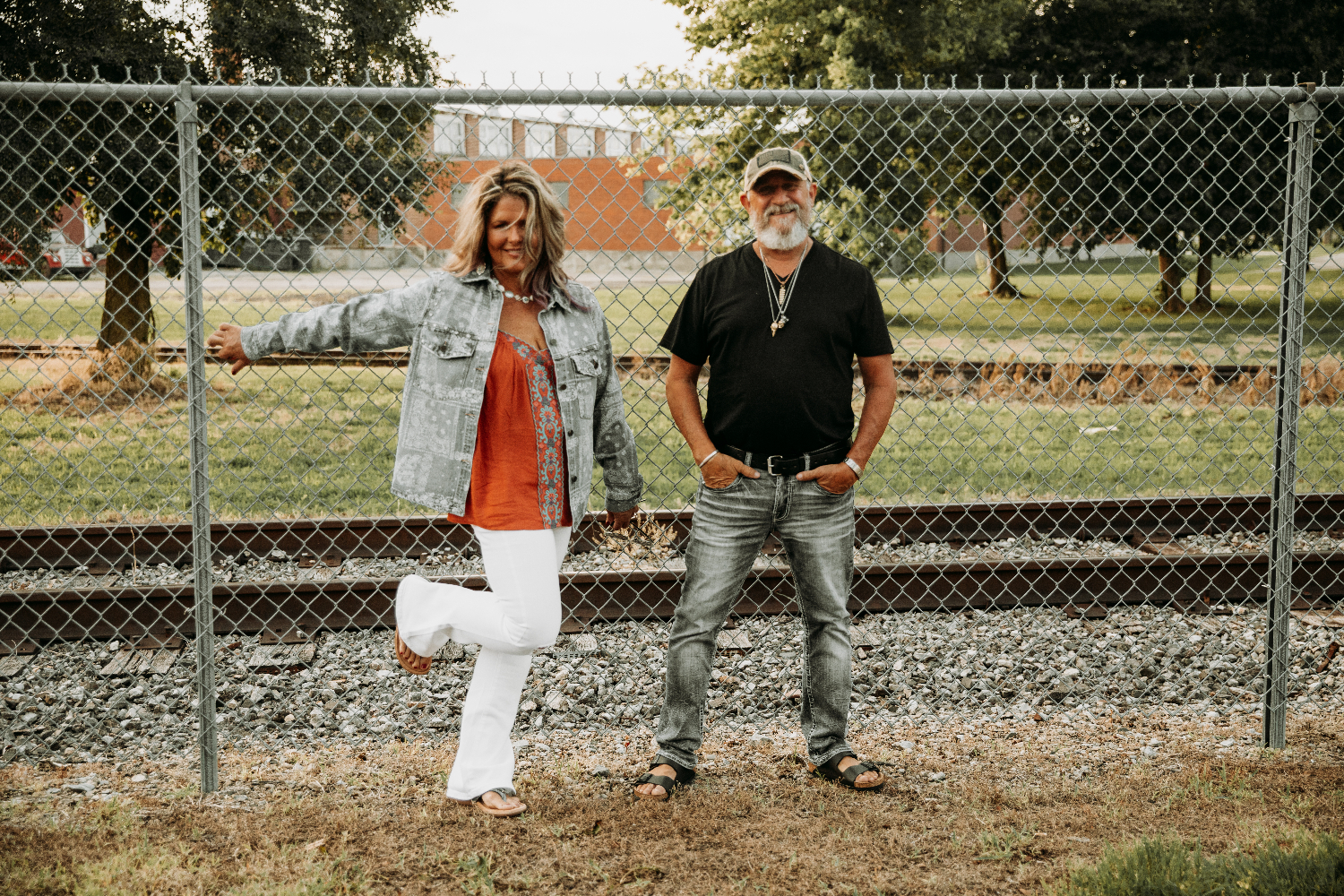
Angie McConnell’s powerful voice and heartfelt songwriting, influenced by icons such as Beth Hart, Janis Joplin, and Merle Haggard, blend seamlessly with Chris McConnell’s soulful musical arrangements, reminiscent of classic 70s rock and blues. Together, as Eleyet McConnell, they create a sound that is both nostalgic and refreshingly modern.
Since meeting in 2013 and beginning their collaborative songwriting journey, Angie and Chris have developed a musical synergy that is palpable both in the studio and on stage. Their songs reflect personal experiences and universal truths, delivered with an honesty that strikes a chord with audiences.
On the eve of their new single release, “Don’t Tell Me Why” from their critically acclaimed debut album, “Crazy World,” the couple took time out to answer some questions in this EXCLUSIVE interview…
“Surrender” is such a personal and emotionally charged track. Can you share with us the inspiration behind the song and what it means to you both personally?
Angie: Lyrically is a reflection over a very difficult period of time for me. Life was throwing curveballs at me, and I had to reconcile a lot of really hard things all at once. “Surrender” was my way of telling the story of my journey, and those moments when things felt quite insurmountable to me. It was my opportunity to share my belief in a higher power and faith that there is something bigger than all of us in control.
As a married duo, how does your relationship and shared experiences influence your songwriting process?
Chris: Almost every song we’ve written is about our life before and after marriage. For us it’s a magical thing to share the ability to express life through song lyrics and melodies. Writing is almost like the framework that makes us who we are both as individuals and as husband and wife. Angie never wrote songs until she and I met, and I was just waiting for things to click for her and see what could happen. For a couple years I’d noodle on the bass during rehearsals to see if she’d catch on and it took a bit. One day it was like she heard it for the first time and things just took off from there.
Angie, you mentioned that “Surrender” is your “give it to God” song. Could you elaborate on how your faith journey has influenced your music, especially in this song?
I grew up in the church and spent several days every week in service, bible study, or the fun activities our church would have on Saturdays or during softball leagues and things like that. My mom was always playing hymns on the piano and she and my dad would sing those old songs playing guitar. It was definitely part of my foundation. Like many people I drifted away from that life as I got older and while I never forgot those times, I certainly wasn’t active like I was when I was younger.
As I explained, the lyrics to “Surrender” talk about the lowest period of time in my life. So many difficult things happening all at once and I was struggling to deal with it all in a healthy way. Literally, one day I was on my knees just sobbing because I was so overwhelmed and I actually said out loud, “I can’t do this please help me”. I felt a peace that I hadn’t felt in a very long time and not because it had left me. It was because I wasn’t open to receiving it and didn’t even realize it.
All my life I remember hearing people say, “lay it down..give it to God”….. but it didn’t really resonate. This time it felt so natural and so easy. I let it all go and gave my worry, my fear, my sadness, my guilt….all of it to God. It was the best thing I could have done for myself.
“Gettin’ By” was a success, hitting the top 30 on the UK iTunes Rock songs chart. How did you feel about the reception to your debut single, and did it impact your approach to creating new music?
Chris: Believe it or not, we never sit down with the intention of writing a song in any certain fashion. Even with a song like “Getting By” and all its success, we still never went back to write the next tune with the intent to stay in that vein and try and match the success. Maybe we should think about that in the future, but our writing just doesn’t flow like that.
Your debut album, “Crazy World,” seems to touch on themes of overcoming struggles and finding hope. How do you hope listeners connect with the overall message of the album?
Angie: The songs on this album all come from our life together. Chris and I have had our share of struggles, and we still found a way to make it all work and it’s been just amazing. Our lives are crazy and fun and full and challenging, and the world at large feels even more crazy at times. This album shares stories of different struggles like paying bills, falling in love, sadness, disappointment and how unfair life is at times – all the things that each of us deals with on the daily. We found each other and have found a way to get through all the hard times together. Anything is possible. Hopefully, someone else can listen to our story and feel encouraged to keep chasing their dream.
“Don’t Tell Me Why” is your upcoming single, set to release soon. Can you give us a glimpse into the inspiration behind this track and what listeners can expect?
Chris: This song came together in a matter of minutes. We were writing with our friend, Darla, in her basement one evening. I came up with those bass intro notes and just sang the line “Don’t tell me why”. Darla and I just seemed to play the same thing without talking much about it and Angie literally just took off with the lyrics to the song. It was like she couldn’t write them down fast enough. Apparently, she was upset with me about something (chuckling). I might be responsible for a few of those songs when she was upset. More stories for later LOL.
Your music has been described as genre-defying. How do you approach blending different musical influences to create your unique sound?
Angie: Our music is simply a culmination of all the great stuff we grew up listening to as kids. Both of us have grown up with several influences and we love it all. I think it’s why our original work feels like it could live in a lot of places and it’s really difficult to say we live in this or that bucket. Both of us grew up on gospel and country music from our parents, Chris loved the 70s music and so did I. We both love rock and roll and blues and oddly enough, neither of us had a love fest with the arena stuff from the 80s. Sure, we listened and yes, we were in the throes of the vibe like everyone else at the time, but I wouldn’t say that era influenced us much as songwriters.
Both of you have dynamic stage presence. How do you translate the intimacy and emotion of your songs into live performances?
Chris: It’s very easy for me to get lost in the songs. We’ve written about some very personal experiences, from difficult arguments in moments where we didn’t think we’d make it all work to the very happiest times together and everything in between. I feel like we both can mentally go right back to those moments when we perform these songs, and the audience can feel that. Angie can grab a crowd. Some of my favorite nights are in small venues when the size of the place just makes it more intimate. There have been times where everyone is so in tune with everything she says, especially when she tells the story behind the songs. It’s magical.
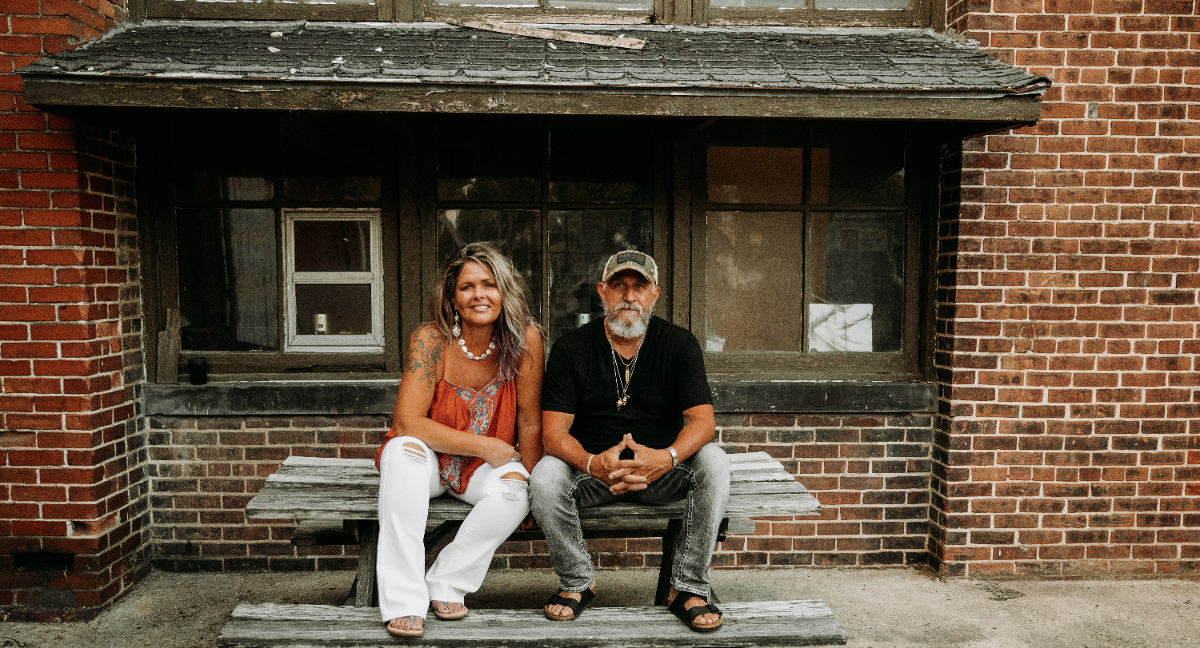
Angie, you mentioned experiencing some difficult times a few years back. How has music been a form of healing or catharsis for you during those times?
Angie: It saved me. Music gave me an outlet to talk about and confront things that were far too difficult to utter out loud to anyone. When I began writing it was like I finally had this vehicle that let me – actually forced me, to look deep into myself and reconcile a lot of things that I had buried or compartmentalized. I had a lot of things to reconcile and through it all I changed dramatically. Chris will say, “You Morphed!”, and he isn’t wrong.
I took a hard look at myself and realized a lot of habits that I had developed where relationships are concerned, and it dawned on me that I had become someone else entirely. I didn’t hate who I had become per se, but I wasn’t happy nor was I really healthy. I had gained a lot of weight; I had some medical issues and I just felt like a cog in a wheel. My life was nothing much beyond going through the motions.
Writing was therapy in a lot of ways. I found a counselor that helped me with skills and tools to cope with life in more healthy ways. During this time writing music became prolific for me. I have told people that I feel like I finally know why none of us remember being born. Can you imagine how awful that would be? I think I know what birth feels like now. The pain, the physical pressure, the feeling of being transported from a cocooned environment to one where you are completely exposed. It’s traumatic. That time for me was traumatic but transformative.
I don’t look the same. I don’t deal with things the same. I feel like I’ve learned so much and I’m more at peace right now than I’ve ever been. Music was my outlet, therapy, healing—all the things. That line in “Surrender” that says, “I’ve changed so much that I don’t recognize when I look in the mirror, but I know I needed the change”….. that line is powerful for me when I reflect on that time and absolute truth.
Looking ahead, what are your goals and aspirations for Eleyet McConnell as a musical duo?
Chris: We would love to take some time to branch out and take the show out of our local region. We’ve been planning about how we can do that and still take care of everything we’ve got going on here at home. We can’t wait to get back into the studio. Angie and I have written so much material and we want to get it recorded as soon as possible. New singles will be released soon, and we can’t wait for that. This year we have stumbled into some cool opportunities to play in larger venues, and we’d love to see a lot more of that. We are blessed. We are grateful and sometimes still can’t believe all that’s happening.
###
“Don’t Tell Me Why” delivers a compelling blend of raw emotion and introspective lyrics, wrapped in the rich musical heritage that Angie (Eleyet) and Chris McConnell bring from their diverse influences. The single follows their successful Top 5 UK iTunes hit, “Surrender,” and continues to build on their reputation for creating music that resonates deeply with listeners. The new release comes on the heels of the duo’s recent Josie Music Awards nomination for Best Multi-Genre Duo.
-
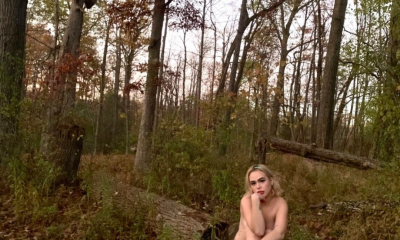
 Music6 hours ago
Music6 hours agoKyra India’s “Ohio”, An Anthem for the Brokenhearted, Rooted in Raw Emotion
-

 Music5 hours ago
Music5 hours agoDUPLEXITY’s ‘Devil In Blue’. A Sonic Sizzle With a Sinister Twist
-

 Artist Spotlight12 hours ago
Artist Spotlight12 hours agoPlasma Chasms sparks a cosmic love affair with “Interstellar Baby”
-

 Music4 hours ago
Music4 hours agoJody Lynn Sprints to the Heart in Electrifying New Single ‘Running’
-
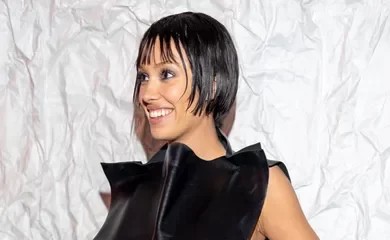
 News3 hours ago
News3 hours agoBianca Censori Defies Hotel Dress Code in Scandalous Style with Kanye West
-
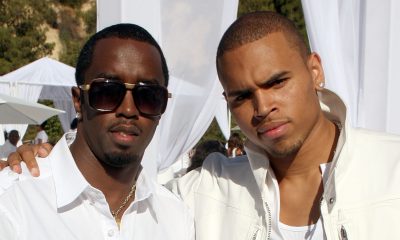
 Music3 hours ago
Music3 hours agoChris Brown’s Awkward Dance on Diddy’s Giant Bed Goes Viral Amid Legal Battles
-

 Music6 hours ago
Music6 hours agoDad’s “Snake Handshake” Slithers Through Industrial Grit with Raw Aggression
-
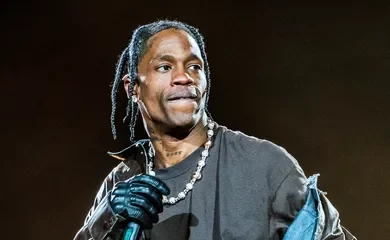
 Music2 hours ago
Music2 hours agoTravis Scott & Cuban Link Heat Up Dating Rumors—Rick Ross Takes Savage Shot at 50 Cent!

